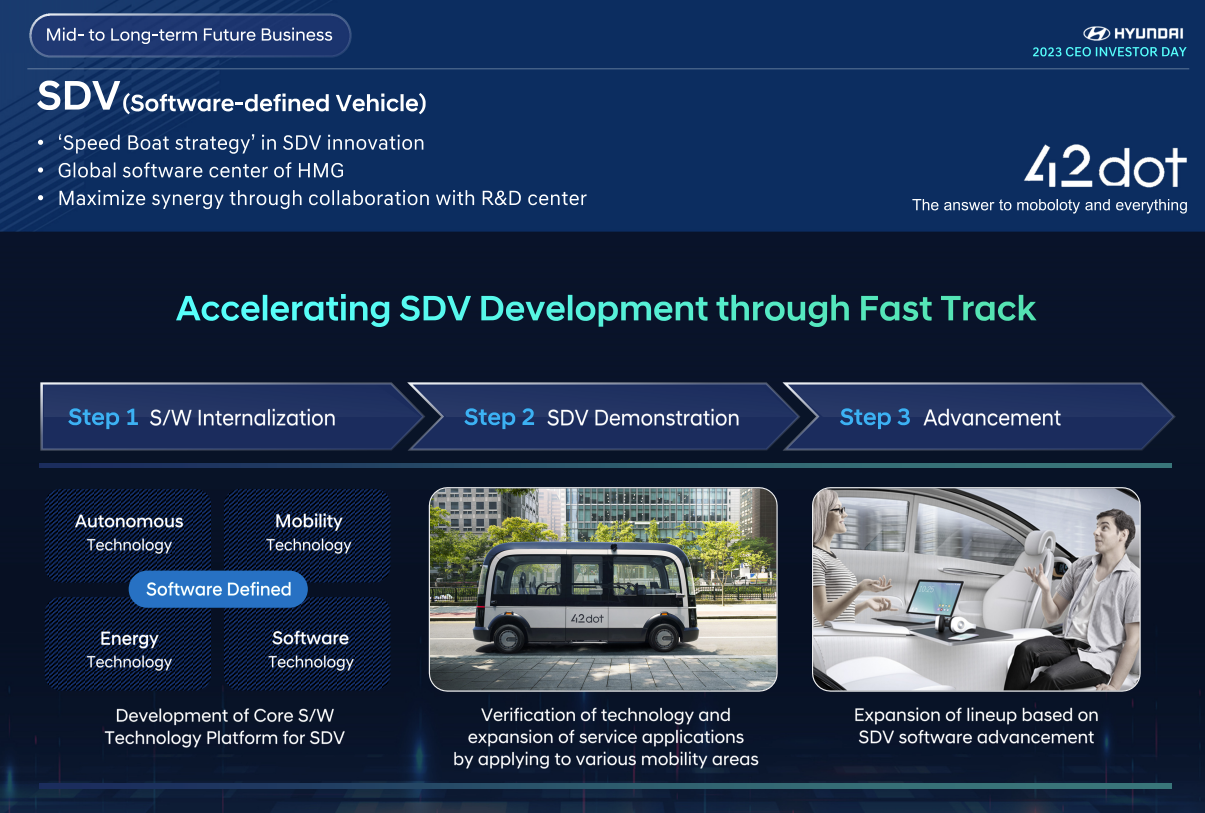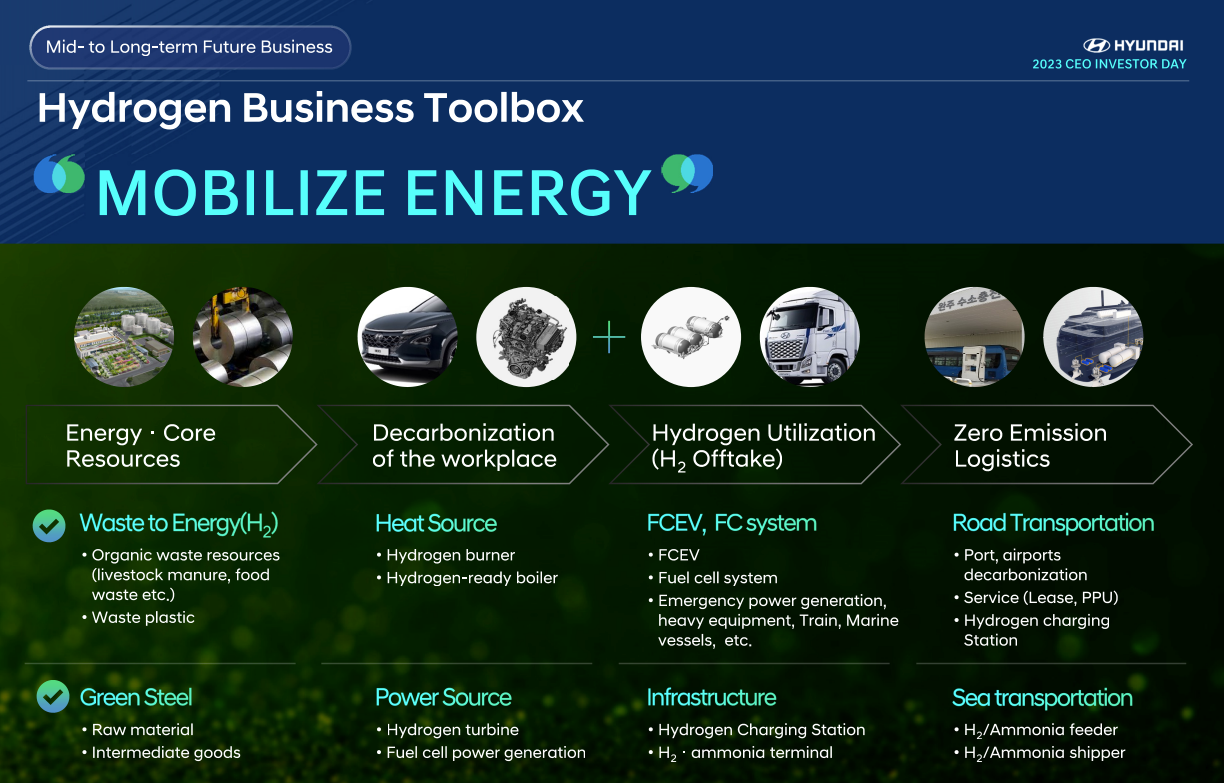Hyundai Motor said it will expand its electric vehicle production and outlined a new strategy called the "Hyundai Motor Way," but the most interesting items had nothing to do with automobiles.
Today's Hyundai is best known for its Hyundai, Kia and Genesis brands. Tomorrow's Hyundai may be better known for autonomous vehicles, flying cars and robots that perform a variety of functions.
Hyundai held an "2023 CEO Investor Day" in Seoul and the broad strategy highlights how the company plans to innovate away from internal combustion engines and become a "smart mobility solution provider." See: Inside the Continuum of Growth and Innovation
Here's what we can learn about innovation from Hyundai's big plan for 2032.
Innovation requires long-term planning. Hyundai outlined a 10-year investment plan to electrify and develop multiple businesses. Hyundai plans to invest $85 billion over 10 years. About $27 billion of that total will go toward electrification, which will feature a value chain that also serves as a bridge to the future.
Constellation ShortList™ Innovation Services and Engineering | The Top 150 Digital Transformation Executives Harnessing Disruptive Technologies to Drive Innovation
Software is everything. Hyundai updated its software defined vehicle (SDV) strategy and plans to build an app ecosystem and an open operating system that will cover everything from autonomous driving, over-the-air updates and other items.
Invest in startups that can advance the SDV strategy. Hyundai plans to use Hyundai-backed startup 42dot as its global software base. Hyundai said:
42dot will start developing its own software platform called Titan by 2024 and validate the platform by 2026 in order to launch an autonomous driving purpose-built vehicle (PBV) business after 2027 with the aim of turning a profit after 2028, according to a phased technology development roadmap.
From there, 42dot will develop new businesses based on PBVs and its software for the mobility and logistics industries. The move makes sense since 42dot can run faster than Hyundai as a whole.

Robotics is a play on the future and requires some patience. Hyundai acquired Boston Dynamics in 2021 and has built out its Robotics Lab. For the market to expand, Hyundai plans the following:
- Development of cognitive judgement and natural language technology.
- Spatial navigation and movement technologies.
- A robot management system that can lead to motion sensing wearable robots as well as new models for multiple purposes.
Mobility will also include air travel so partner up. Hyundai is betting that advanced air mobility will be key to developing cities of the future. Infrastructure for flying vehicles will require partnerships with the likes of Microsoft, Rolls-Royce, Hyundai units and other partners.
Today's sustainability plays may be different tomorrow (think hydrogen). Hyundai plans to become carbon neutral by using hydrogen, including biogas and waste-plastic based hydrogen, to power its EV production facilities and surrounding infrastructure. The company said it will present its hydrogen business vision at CES 2024.



